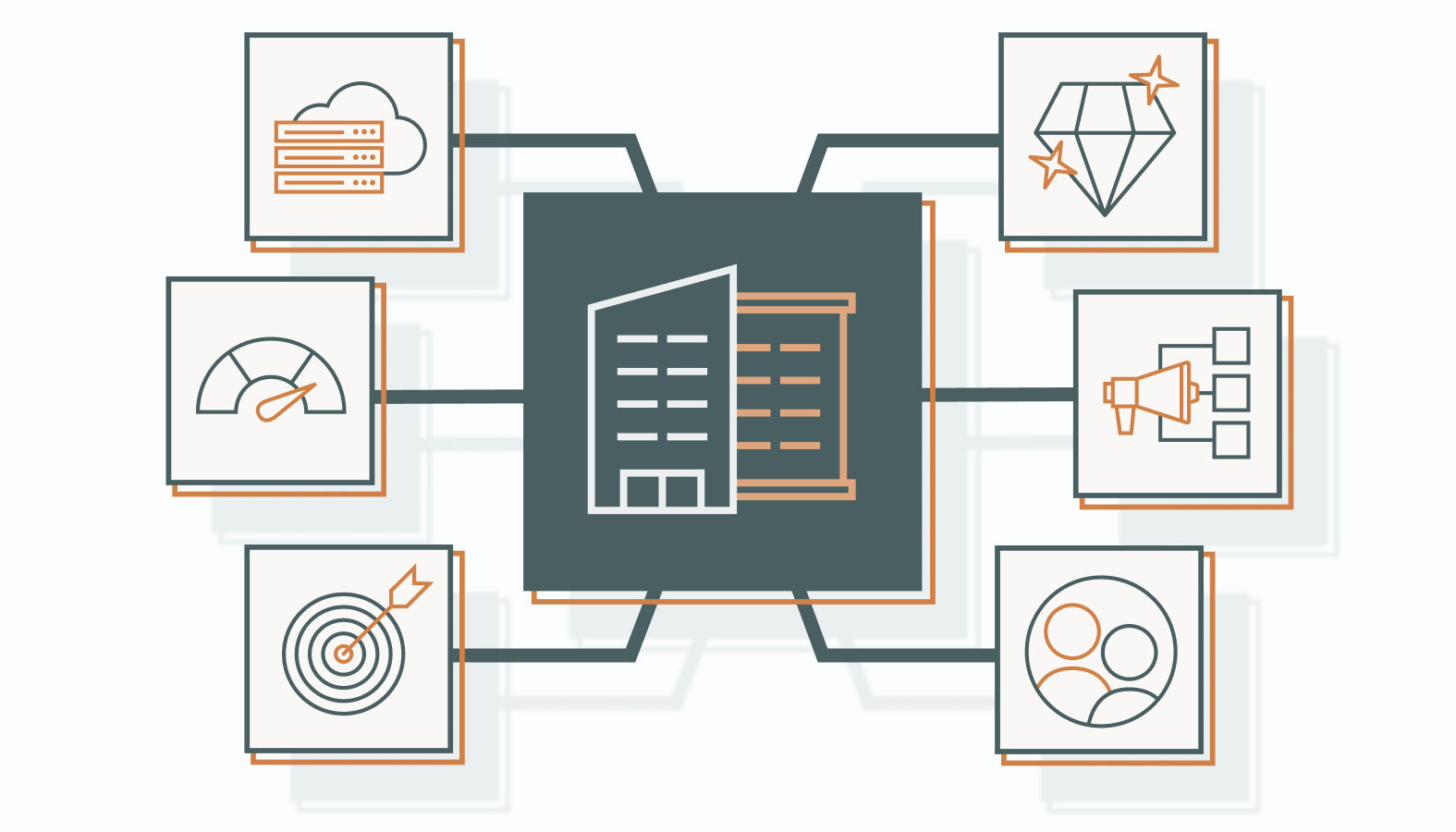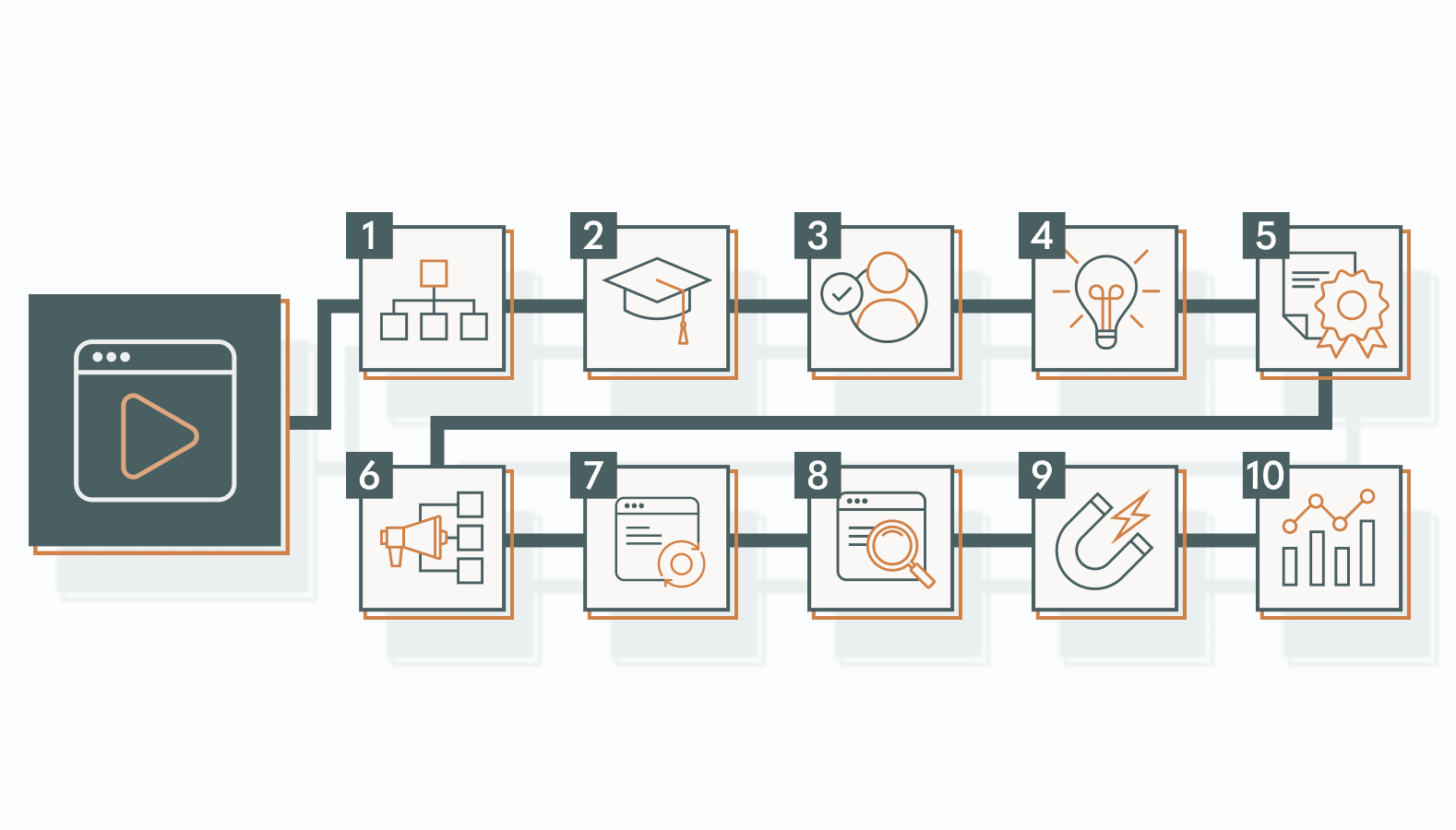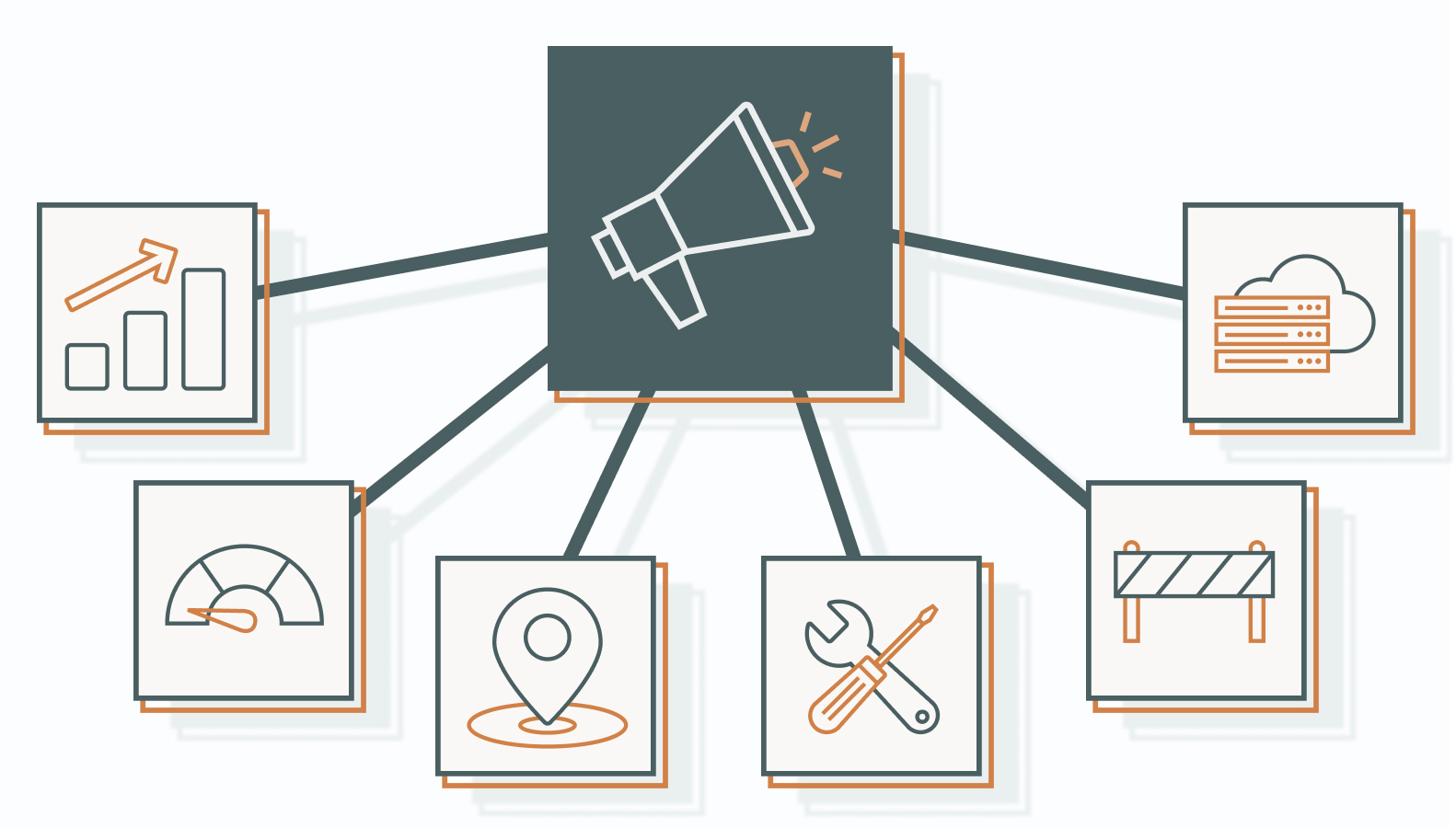Growth marketing in the B2B world is an expansive approach that goes beyond grabbing customers’ attention. It’s about creating a deeper connection with new customers at every step of their journey.
As we start into the year, it’s not enough to attract leads. We need to nurture them into long-term customers. A good B2B growth marketing strategy is crucial here. It involves crafting a strategic, informed plan that aligns with business goals and market realities. An effective strategy guides B2B marketers through the digital world full of fierce competition and changing buyer behavior.
Understanding the Essence of Growth Marketing
Growth marketing focuses on building relationships with your market at scale, engaging them across the customer lifecycle. This approach is particularly important in B2B contexts where selling takes more time and buying decisions are made with careful thought and often involve a marketing team.
Unlike traditional marketing, which often focuses on brand awareness and initial customer acquisition, growth marketing is iterative. It looks at every touchpoint, every interaction, to not only acquire customers but to keep them engaged, make them loyal, and eventually turn them into vocal advocates for your brand. Marketers need to think ahead and plan for the future.
In contrast to performance marketing, which is centered on short-term gains and individual campaigns, growth marketing is a continuous, all-around process. It mixes the creative with the analytical, using data to shape stories and experiences that really connect with B2B customers.
This approach ensures market strategies evolve as the market does, staying relevant, impactful, and, most importantly, competitive.
Crafting a Robust B2B Growth Marketing Strategy
A robust growth marketing strategy is your master plan in a competitive arena. It’s a mix of various components – each crucial to the mission – blended into a coherent, responsive strategy.
A successful strategy is grounded in data, clear objectives and KPIs, deep target market understanding, precise product-market fit, comprehensive cross-channel marketing, and a focus on customer retention.
What sets a growth marketing strategy apart is its harmony with the overall business strategy. It’s like a dance, where each marketing move is in step with the business’s financial targets, product innovation cycles, and market expansion plans.
Data-Driven Mindset
A data-driven mindset in B2B growth marketing means letting data guide all decisions. It’s about using facts, not guesses, to understand customer behaviors and reveal actionable insights. This way, marketing initiatives hit the mark, and resources aren’t wasted on ineffective channels and tactics. Moreover, a data-driven approach allows for real-time adjustments to keep strategies relevant.
Clear Objectives and KPIs
Setting clear objectives gives your marketing initiatives purpose and direction. A B2B growth marketing strategy starts with establishing what success looks like and how to measure it with KPIs (key performance indicators).
These measurable objectives and the KPIs that track them should fit your overall business goals. They ensure every effort moves the company in the same direction and provides a benchmark for continued improvement.
Target Market Understanding
Understanding your target market in B2B is about analyzing your ideal customer – what makes them tick, their pain points, and their goals. It involves thorough market research to get these insights.
With this knowledge, you can create detailed buyer personas that guide all your marketing efforts. It helps tailor your message to speak directly to your target market and resonate on a personal level.
Product-Market Fit
In B2B, the product-market fit is not a one-and-done achievement but a continuous pursuit. It’s an ongoing dialogue with your customers, collecting and valuing their feedback to refine your offerings.
This fit is a litmus test of how well your product solves real-world problems for real businesses. It’s about finding that sweet spot where your product perfectly meets customer needs, leading to successful sales and happy clients.
Cross-Channel Marketing
Cross-channel marketing ensures your brand message is consistent across various platforms and touchpoints – in emails, on social media, and beyond. This helps customers identify and trust your brand because they get the same quality experience no matter how they interact with you. A consistent message is not just heard but remembered and appreciated.
Customer Retention
In B2B, customer retention is crucial because it’s often more cost-effective to nurture existing clients than to attract new ones. This part of your strategy is about building loyalty by delivering continuous value, earning trust, and ensuring satisfaction.
Long-term relationships with many B2B clients are key for steady business growth, made stronger by customer satisfaction, repeat business, and referrals.
The Role of Content in B2B Growth Marketing
In B2B, where the sales cycle is a marathon and not a sprint, content isn’t just king – it’s the entire kingdom. Creating and sharing insightful, authoritative content establishes your brand as a thought leader in your field, building a strong foundation of credibility and trust that’s priceless.
It’s important to recognize that content is key in the growth marketing process, from first learning about you to thinking about buying, making a purchase, and then becoming a supporter of your brand. But not just any content – it has to resonate with the B2B audience.
Several Strategies that Hit the Mark when Creating Content
- Understand the Buyer’s Journey: Customize your content to address customers’ specific needs and pain points at each stage of the customer journey. From educating potential customers to helping them assess and affirm their decisions, your content should guide them to purchase and beyond.
- Educate and Inform: B2B clients seek knowledge that can aid their business operations. Offering rich, informative content positions your brand as a valuable resource. It’s about delivering insights, not just information.
- Leverage Industry Experts: By featuring insights from experts within your company or the wider industry, you enhance your content’s credibility and provide unique perspectives that can differentiate your brand.
- Focus on Problems and Solutions: B2B content that focuses on solving real industry problems resonates well with professionals looking to overcome similar challenges.
- Quality Over Quantity: It’s not about bombarding your target audience with content but offering valuable, high-quality pieces of content worth their time and attention.
- Use Various Formats: Different professionals consume content differently, such as blogs, whitepapers, webinars, podcasts, and videos. Use a mix of formats to cater to all preferences.
- Be Consistent: Sharing educational content regularly keeps your brand top-of-mind, but consistency in quality, voice, and messaging is equally important.
- Optimize for Search Engine Optimization (SEO): Optimizing for SEO ensures that your content is discoverable. Use keywords and topics that your B2B audience is searching for.
- Encourage Engagement: Craft content that invites interaction – whether through comments, sharing, or direct dialogue – to deepen relationships with your audience.
- Measure and Adapt: Use metrics to understand what content works and why. Then adjust, improve, and craft your content strategy based on these data.
Optimizing the Marketing Funnel for B2B Growth
In B2B growth, every stage of the marketing funnel needs careful attention. The funnel isn’t merely a sequence of steps leading to increased revenue; it’s a customer’s experience with your brand, and it should be rewarding every step of the way.
At the top, where awareness is the goal, optimization means ensuring your market knows you exist and what you stand for. You must be visible in the right places and engage from the first interaction with compelling narratives that reflect the problems and goals of your audience.
As prospective customers move down the conversion funnel into consideration, the focus shifts to nurturing their interest by providing more in-depth content, demonstrating expertise, and differentiating your brand from competitors. It’s where the trust you’ve started building grows as customers evaluate how your products or services align with their needs.
Personalization becomes crucial in the decision-making stage. Personalized messages, success stories, product demos, and trial offers can help sway the balance in your favor. At this point, removing any friction that might prevent conversion is critical, be it through clear benefits, accessible customer support, or seamless onboarding processes.
But the funnel doesn’t end with conversion. For true growth, current customers must love your brand to the extent they become advocates. This requires delivering on promises, providing exceptional support, and giving them great value beyond the initial sale. Look for opportunities to upsell and cross-sell and ensure every interaction makes them glad they chose you.
There are several ways to convert prospects into loyal customers, but they all come down to a few core principles: deeply understanding customer needs, delivering personalized experiences, and encouraging ongoing engagement. Additionally, regular communication, outstanding customer service, and adapting offerings to changing market conditions are also important in retention.
Utilizing New Technologies in B2B Growth Marketing
In a landscape brimming with innovation, B2B marketers are turning to new technologies to improve their strategies and gain a competitive edge. Technologies like artificial intelligence and blockchain are changing the game, helping marketers understand their audiences, personalize efforts, and measure success.
Artificial Intelligence (AI) and Machine Learning (ML)
AI and ML are at the forefront, empowering marketers to predict customer behavior, automate routine tasks, and deliver personalized content at scale. They analyze data with superhuman speed, uncovering patterns and preferences that inform smarter, more effective strategies.
Predictive Analytics
Predictive analytics, a subset of AI, allows marketers to anticipate needs and trends, leading to more timely and relevant engagements. It’s like having a data-powere/+ crystal ball to see which leads will most likely convert or which customers may churn.
Account-Based Marketing (ABM) Platforms
ABM platforms help the entire marketing and sales teams work together to target high-value accounts with customized messages and campaigns. They’re essentially a control center for launching precise sustainable marketing programs aimed at particular companies instead of a one-size-fits-all approach.
Marketing Automation
Marketing automation technology streamlines workflows generates leads, and ensures no opportunity slips through the cracks. It works like an efficient engine in marketing, helping everything run smoothly, from lead acquisition to customer retention.
Augmented Reality (AR) and Virtual Reality (VR)
AR and VR offer immersive experiences that transport clients into a world where they can interact with your products or services. These experiences provide a “try before you buy” option that can be a powerful persuasive tool.
Internet of Things (IoT)
IoT connects the dots between various devices and platforms, collecting valuable data and offering real-time customer insights. It’s a network of intelligence that helps small B2B marketers tailor their strategies to the minute details of customer behavior.
Blockchain Technology
Blockchain is making waves with its potential for security and transparency in marketing. From combating ad fraud to ensuring the integrity of supply chains, it’s setting a new standard for trust in B2B transactions.
Conversational AI and Natural Language Processing (NLP)
Finally, conversational AI and NLP are transforming customer service through chatbots and virtual assistants. They provide instant, helpful responses that enhance the customer experience.
While these technologies pack a punch in potential benefits, there are challenges to consider. They require investment, not just in cost but also in time and talent, to implement and manage them effectively.
In addition, there’s also the task of integration with existing systems and the ever-present concern of privacy and data security. Nonetheless, for strong B2B marketers who navigate these waters successfully, the rewards can be substantial.
B2B Growth Marketing Trends and Predictions for 2024
B2B growth marketing is set to undergo significant transformation this year. Trends indicate bigger changes in market dynamics and buyer behaviors. Marketers who keep up and adjust their strategies will take their brands to new heights of success.
Upcoming Shifts to B2B Buyer Behavior
Recently, B2B buyers have preferred to conduct their own research and decide on their own, without pushy sales pitches. They rely more on digital marketing channels, social proof, and peer testimonials than salespeople. To adapt, marketers need to provide more value upfront, empowering buyers with information and resources that help them make informed decisions.
Personalization is key, as buyers expect solutions adapted to their needs and relevant and engaging content. Growth marketing strategies should concentrate on creating a customer-centric journey and using data to deliver personalized experiences.
Heightened Emphasis on Privacy and Data Security
Data privacy and security are becoming huge issues because of high-profile data breaches and new regulations like GDPR and CCPA. Buyers and users are now more cautious about their personal information and want to know how it’s used and have more control over it.
B2B marketers need to focus on earning trust by respecting customers’ privacy and handling their data safely. They should use secure technologies, be clear about their data collection practices, and get explicit consent from prospects and customers.
This focus on privacy is changing marketing approaches, pushing for more ethical data use and opening discussions about what data is truly needed for delivering value.
Collaborating With a Growth Marketing Agency
Engaging with a growth marketing agency can be a game-changer for B2B companies looking to sharpen their competitive edge. Whether it’s scaling their ecommerce, conserving resources, breaking into new markets, accessing specialized skills, overcoming growth plateaus, or adopting a data-driven approach, an experienced growth marketing agency can be an invaluable ally.
When Should You Consider Partnering With a Growth Marketing Agency?
Sometimes teaming up with a growth marketing agency is a smart move for a B2B business. These agencies have the tools to boost your marketing and help your business through different growth stages and challenges.
Let’s consider the scenarios that signify it’s time to get an agency on your side.
When Scaling the Business
During scaling, businesses need to expand their reach without overextending. A growth marketing agency can help plan and do the work needed to grow your business steadily and not risk too much.
When Internal Resources Are Limited
Limited resources can stunt a company’s growth potential. Agencies can supplement these constraints with their resources, offering specialized knowledge and manpower to fill the gaps.
When Entering New Markets
For businesses looking to enter new markets, the right agency can mitigate risks and improve the process. Their experience in market entry strategies can be useful for navigating unfamiliar territory.
When Needing Specialized Skills
Specialized marketing needs demand specialized skills – something that agencies offer in spades. They have a diverse skill set to tackle specific marketing challenges with expertise.
When Facing Plateaus in Growth
If growth has flatlined, agencies can provide fresh strategies and tactics to jumpstart momentum. They bring new perspectives that can breathe life into stagnant marketing efforts.
When Seeking a Data-Driven Approach
Agencies excel at using data to inform and refine marketing strategies. They use analytics and insights to make smart decisions and ensure marketing efforts are based on facts.
The Agency Experience (Why It’s Right for You)
Growing in the B2B industry often requires specialized skills, tools, and knowledge that only a growth marketing agency can provide. Moreover, when you team up with an agency, you’re not just hiring a service; you’re gaining a partner vested in your success.
Here’s a glimpse into the unique advantages of the agency experience and why it might just be the right choice for your business’s growth plans.
Expertise and Experience
Agencies draw on a deep well of knowledge from various client experiences to make their marketing strategies better and more effective.
Access to Advanced Tools
Agencies often possess advanced marketing tools that many businesses might not otherwise have access to. These tools can provide better insights and improve operational efficiencies.
Flexibility and Scalability
With an agency, marketing efforts can scale up or down as needed to meet market demands or business objectives. Agencies offer flexible services and pricing models for various needs and budgets.
Cost-Effectiveness
Partnering with an agency can be more cost-effective than hiring a full in-house team. Furthermore, it reduces overhead costs while still providing access to top-tier marketing expertise.
Fresh Perspectives
Agencies bring fresh eyes and challenge conventional thinking. Their external perspective can uncover new opportunities and creative ideas that internal teams might overlook.
Speed to Market
Agencies can act fast and deploy campaigns quickly to seize market opportunities that could be pivotal for growth. This responsiveness is key in a fast-paced business environment.
From Vision to Victory: The Impact of Effective B2B Growth Marketing
We’ve seen that B2B growth marketing takes full of diverse and exciting strategies and technologies. The path to growth is not a straight line but a series of well-informed steps and decisions, each contributing to the broader picture of success.
Nonetheless, whether you’re a startup poised to disrupt the market or an established company seeking to innovate and expand your reach, a strong understanding and applying the principles of growth marketing is crucial. It’s about finding the right balance between tried-and-true practices and advanced tactics to drive your business forward.
If you’re pondering how these insights could transform your B2B marketing efforts or if you’re seeking guidance tailored to the unique challenges and opportunities your business faces, let’s connect. We’re not here to sell you a one-size-fits-all solution because we know every business is unique, with its own goals and challenges.
Schedule a candid conversation with one of our experts, where we can discuss your growth marketing strategies in an open, honest, and pressure-free environment. Together, we can explore avenues for growth that align with your business vision and market dynamics.
It’s a journey, and we’re ready to help you with the expertise, tools, and ideas you need to succeed.








